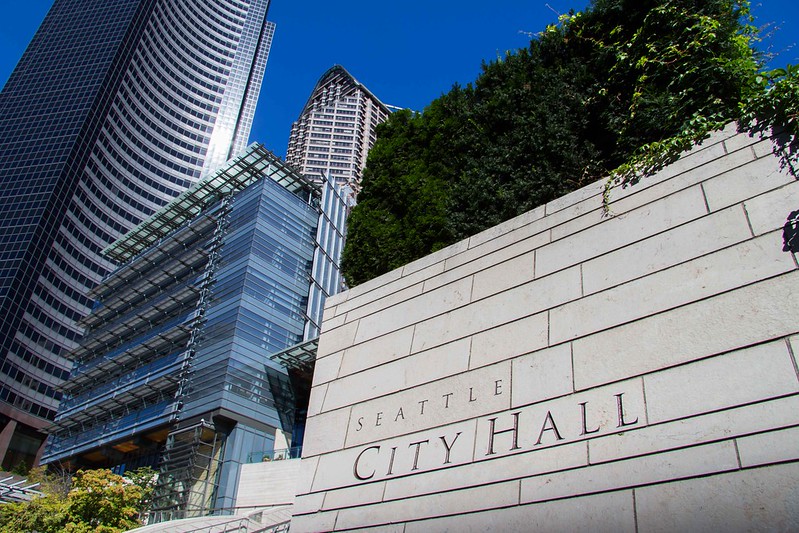The Seattle City Council’s Select Budget Committee is currently debating a proposed 2% capital gains tax to support food and housing programs for low- and middle-income residents. The response from elected officials, as well as the tech and business community, has been mixed. Some leaders question the need for more revenue, while others express concerns about potential impacts on the business industry and tech talent retention. The proposal comes amidst budget discussions for the 2025-2026 fiscal year, with Mayor Bruce Harrell calling for $8.3 billion in spending and a $270 million hole in the general fund.
City councilmember Cathy Moore is leading the charge on the proposed capital gains tax, citing growing unmet needs for financially vulnerable residents in Seattle. Revenue from the tax would fund initiatives to help people with rent payments, housing down payments, and food assistance. However, not all councilmembers are on board with the new tax, with some calling for a closer examination of existing programs that may not be delivering desired results. Income inequality in Seattle has grown since the pandemic, with tech worker wages reaching record highs, fueling the push for increased funding for social services.
The proposed capital gains tax is expected to impact a subset of tech employees and entrepreneurs who receive stock options or equity as part of their compensation packages. The Washington Technology Industry Association (WTIA) has raised questions about the tax’s potential revenue, with concerns about how it might affect program funding. Seattle Chamber of Commerce President and CEO Rachel Smith also doubts the need for tax increases, citing steady revenue growth in the city and the need to attract and retain businesses and talent in a competitive economic environment.
Research by sociologist Cristobal Young suggests that millionaires are less likely to relocate due to tax increases, as they are established in their careers, have families and homes, and higher incomes. While some fear a potential tax flight, others argue that a capital gains tax could raise additional resources for social services that benefit the community. The proposed city tax, similar to the state’s capital gains tax, aims to provide added revenue without burdening lower-income residents and has survived legal challenges and public support.
Concerns about innovation, migration, and taxation have sparked debate over the proposed capital gains tax in Seattle. Some argue that tax policy has little impact on innovation, pointing to examples like California where high taxes coexist with a thriving tech industry. The focus remains on addressing the needs of financially vulnerable residents in Seattle while ensuring the city’s economic competitiveness. As discussions continue and budget amendments are considered, the future of the proposed tax and its potential impact on the city’s social programs and economic landscape remain uncertain.












